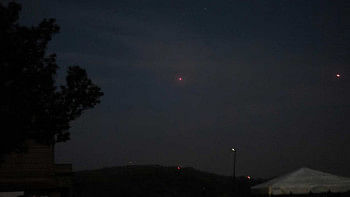End of an eventful year
With the clock striking 12 at night, a new year began leaving behind an eventful year that saw less heat in the political arena, a steady economic growth, the long-awaited trial and execution of Bangabandhu killers and the start of the war crimes trial process.
The year 2010 had some significant national events like two landmark higher court verdicts that cancelled two constitution amendments, which had legitimised the military rules of two generals-turned-president. It saw erratic power crisis, soaring prices of essentials, decoding of the jute plant genome by a Bangladeshi researcher, garment sector unrest and some commendable successes in sports.
In 2010, the world had their eyes on Africa as the biggest show on earth, the football world cup, was held in the continent. Spain for the first time snatched the crown.
On the eve of the new year, President Zillur Rahman, Prime Minister Sheikh Hasina and Leader of the Opposition Khaleda Zia in separate messages greeted the people of the country and the world community.
People had a bit of a relief from the traditional politics of hartal and violence on streets as they saw only three hartals called in 2010. Even though there was not much going on on the streets in 2010, it gained momentum with Khaleda Zia's cantonment house issue taking the centrestage in November. The BNP chairperson had claimed that the government forced her out of the house.
Remittance slowed down and the number of people migrating also dropped. The agriculture sector maintained a steady growth throughout 2010. The country's industrial sector made a turnaround thanks to imports of capital machinery, disbursement of term loans (loans for more than a year) and high export growth.
Inflationary pressure, however, mounted, now hovering around eight percent, slashing people's purchase capability.
Bangladesh was vocal in the United Nations Climate Change Conference, 2010 held in Cancún of Mexico in November. Some progress on climate fund was made but Bangladesh seemingly got nothing except assurances.
The stock market was buoyant with the index of Dhaka Stock Exchange going up 3,754 points (82 percent) to reach 8,290. The bourse also witnessed its steepest single-day fall in history last year.
Economy suffered badly due to power crisis. Although the government added some electricity to the national grid, the effort was too little to meet the growing need of the people.
The year ended a black chapter of the country's history. On January 28, five condemned killers of father of the nation Bangabandhu Sheikh Mujibur Rahman were hanged at Dhaka Central Jail.
On February 2, the Supreme Court dismissed two petitions contesting the High Court verdict that declared the constitution's fifth amendment illegal. The verdict declared the governments between 15 August 1975 and 9 April 1979 were in power without lawful authority.
The much-discussed International Crimes Tribunal was formed in March to try the war criminals. Five top suspects of crimes against humanity and other crimes during the war were arrested and the process of their trial has begun in the tribunal.
The national flag of Bangladesh reached the highest peak of the earth as a Bangladeshi mountaineer Musa Ibrahim reached the top of Mount Everest on May 23.
The year saw another historic verdict. In August, the HC declared illegal the 7th amendment to the constitution that had legitimised the military rule by Hussein Muhammad Ershad. The full text of the judgment was released on 29 December with the observation that all military rulers and their accomplices must be punished.
Violence in garment sector drew attention throughout the year. A series of fierce clashes between workers and law-enforcers left several people dead and injured many, causing serious concern for the government and the business community.
Stalking of women took a turn for the worse with a growing number of people being killed for trying to resist the nuisance.
In the first nine months of the year, at least 25 women killed themselves to escape the horror of abuse, while nine males lost their lives for standing up against stalkers, says a report of rights group Ain O Salish Kendra.
One of the success stories of a Bangladeshi researcher last year was decoding of jute plant genome. The innovation, masterminded by scientist Maqsudul Alam, opened up a new vista in the development of variety of the world's most adorned biodegradable natural fibre.
One of the tragic events for the nation last year was the devastating inferno in the capital's Nimtoli that killed at least 123 persons and injured scores more.
Residents of the capital had to bear the brunt of tailbacks round the year while the prices of essentials remained stubbornly high.
In the sports arena, cricket had given the nation many occasions to cheer like when the Tigers blanked the Kiwis 4-0 in a home series in October.
Cricketers also fetched the maiden Asian Games gold for the country.
Captain Shakib Al Hasan was in the spotlight at the international level as the wonder boy topped the list of best all-rounders in limited-overs cricket. The cricketing prodigy bagged 46 wickets from 27 matches in the year.
The nation rejoiced when the national booters earned the South Asian Games gold last year.
The international success of Siddikur Rahman, the first ever professional golfer of Bangladesh, won accolades from home and abroad.

 For all latest news, follow The Daily Star's Google News channel.
For all latest news, follow The Daily Star's Google News channel. 



Comments